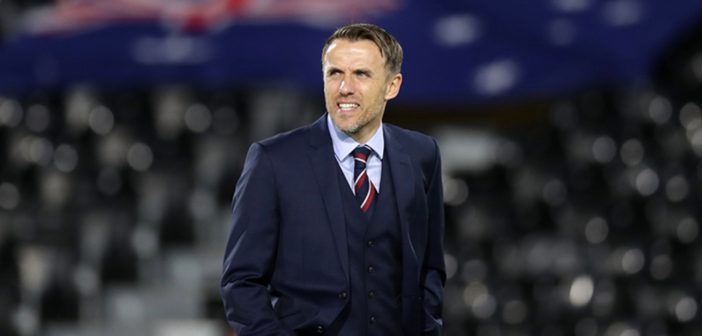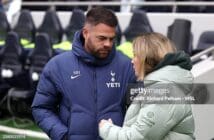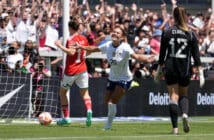“A failed experiment,” and, “no better, no worse.” Two clichés you’ll likely be seeing a lot of as commentators attempt to break down Phil Neville’s reign as England manager…
In a time of no sport and little in the way of concrete news, the story broken in the Times earlier this week that Neville would be departing his role as manager of the Lionesses, brought about a flurry of activity. Finally, we had something topical to write about again, fingers poised over keyboards as we awaited confirmation from The FA only to be told that Neville would be seeing out the remainder of his contract. The official statement from the Football Association akin to announcing that after you’ve finished your McNuggets you’ll be leaving McDonalds; it was a given, a non-event.
The news was there was no news. Yet, somehow we had more questions then when we started: Would Neville lead Team GB at the Olympics (if the Games take place when they’re currently scheduled to)? Who would be his successor? Why was he to be involved in the hiring process? What would the hand-off period look like? With England not due to have a competitive fixture until a year after his contract expires (and no football at all in the foreseeable future) why was he still hanging around?
An unintended brand
Neville has had his critics since taking charge of the team (and not always fairly in his eyes), but for all the talk, the press conferences and wild tangents he’s dragged those in the room down with him. For the outlandish proclamations about his one of a kind vision and his bravery in playing short corners (?!), like all football managers, it will be the football that will be what he’s judged on.
As for that Neville-brand football? A brand of playing out from the back that only worked against markedly weaker opposition – part of his non-negotiable style. Of that terrible tradition of national team managers of picking players on past success rather than current form. The possession and passing stats noticeably improved under the former Manchester United man but the gains were largely impotent; possession for the sake of it with little significant penetration.
The enduring memory of so very many goals conceded from poorly and non-defended crosses into the box.
The almost but not quite
There will always be the summer of ’19 and the what ifs of a tournament without VAR to deny Ellen White an equaliser in the semi-final against the USA. The wish a double-edged sword that would have seen England’s first goal in France – a VAR-awarded penalty awarded for a ball-to-hand against Scotland – chalked off. The buzz across the Channel that amplified itself in England to drive television audiences and energise the public.
However, the football that defines Neville’s tenure has little substance to be written about, the World Cup wasn’t a success on the pitch. The all-time high FIFA ranking of second in the world has long since passed (with England now down to sixth).
A failed experiment in some respects but a success in others. Unlike his predecessors, due to the Coronavirus pandemic, the coach only had one tournament as England boss (Team GB is a different, cloudier matter) and he achieved no more on the pitch than those who went before him.
![Prost International [PINT]](https://prostinternational.com/wp-content/uploads/2021/08/PINTtFontLogoRoboto1536x78.jpg)



